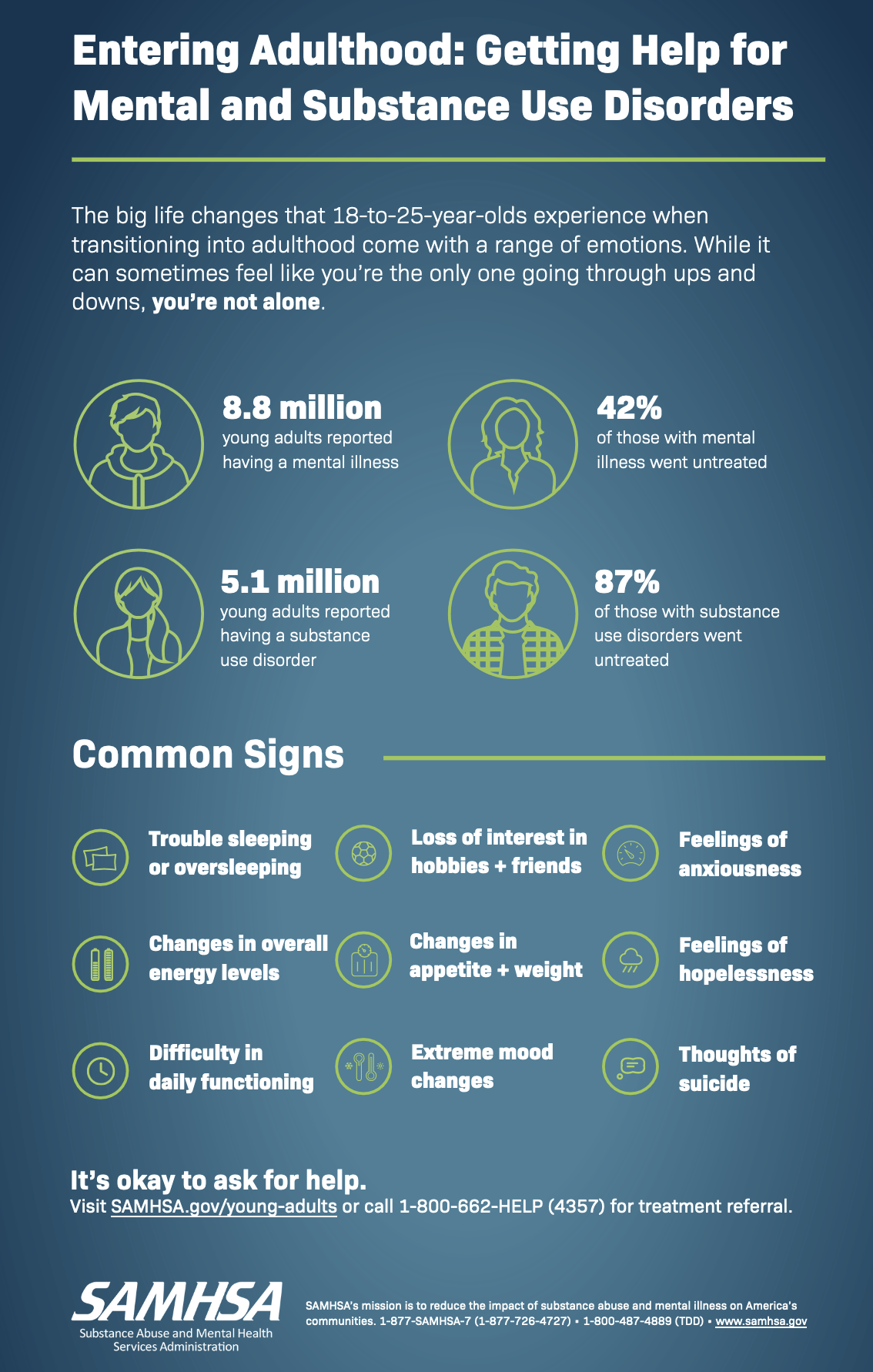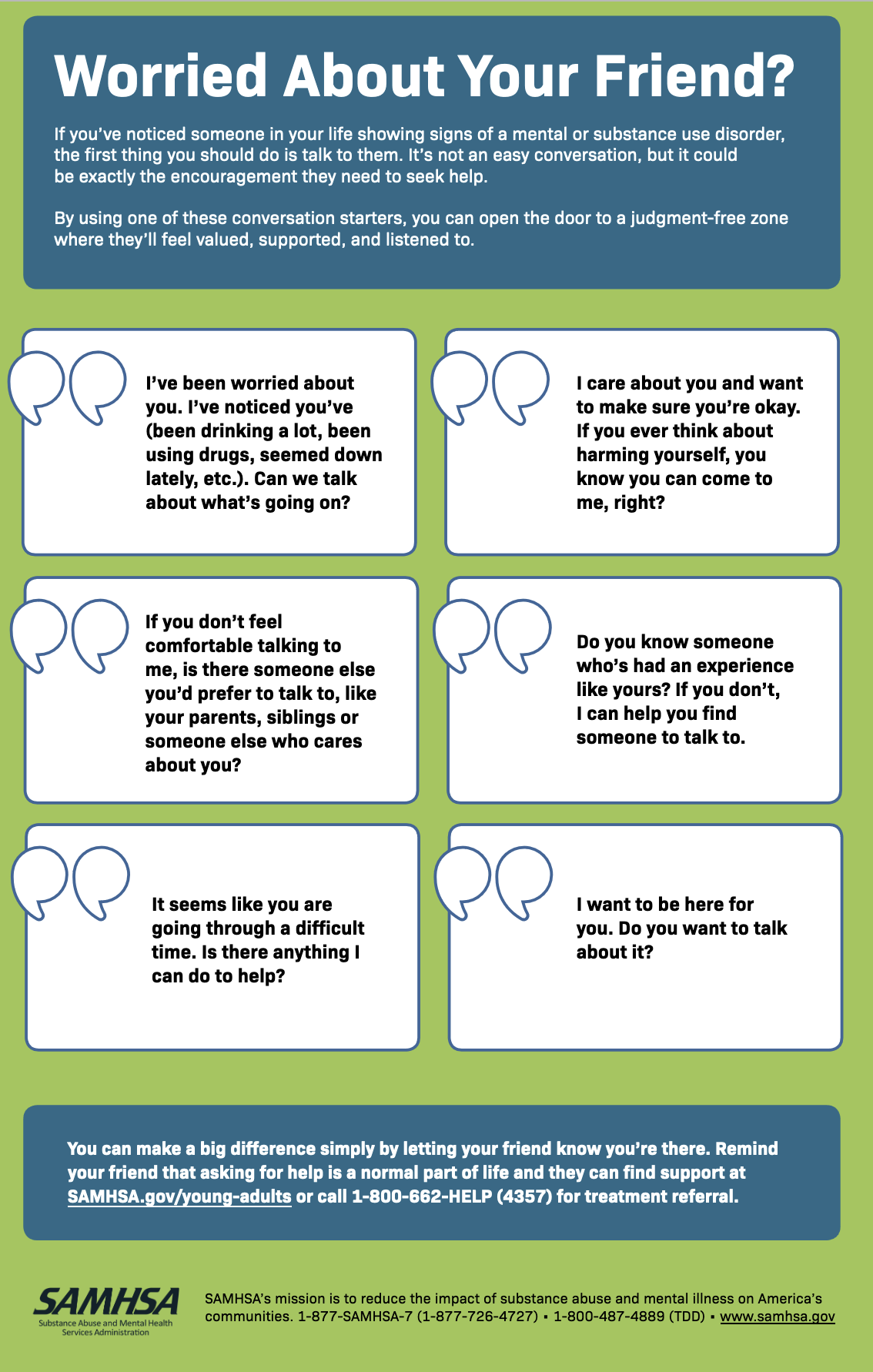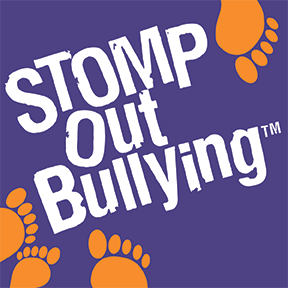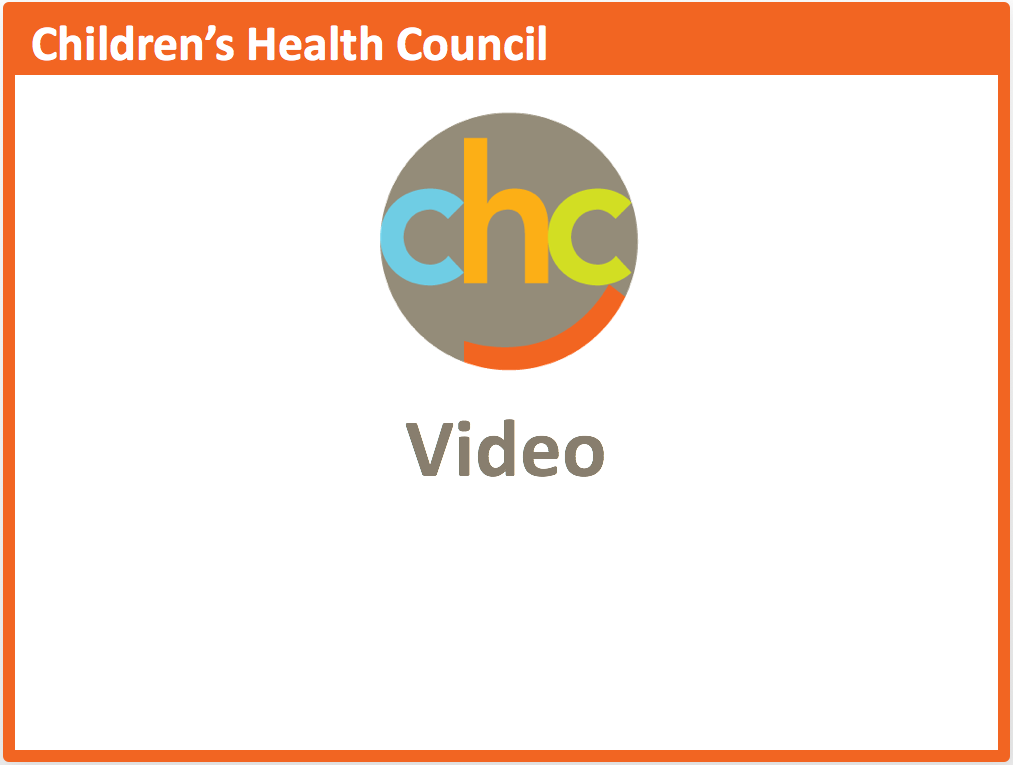 Entering adulthood can be an emotional time, but sometimes the ups and downs can mean something more. Millions of young adults are living with a mental or substance use disorder and many either do not realize they have one or are not paying attention to the signs and not seeking help.
Entering adulthood can be an emotional time, but sometimes the ups and downs can mean something more. Millions of young adults are living with a mental or substance use disorder and many either do not realize they have one or are not paying attention to the signs and not seeking help.
It is important to remember that asking for help is a normal part of life, and you should never feel like you have to take on the world alone. If you are concerned that you or someone in your life may be drinking too much, using drugs, or dealing with mental illness, there are resources available to help.
The big life changes that 18-to-25-year-olds experience when transitioning into adulthood come with a range of emotions. While it can sometimes feel like you’re the only one going through ups and downs, you’re not alone.
- 8.8 million young adults reported having a mental illness
- 42% of those with mental illness went untreated
- 5.1 million young adults reported having a substance use disorder
- 87% of those with substance use disorders went untreated
Listen to Yourself
Is your intuition telling you something is up? If you think you are having problems with mental health or substance use, listen to yourself. This animated video speaks to the importance of listening to yourself when your body alerts you of signs of potential problems such as a mental illness or substance use disorder.
Watch the video:
Entering Adulthood: Getting Help for Mental and Substance Use Disorders
Common Signs
- Trouble sleeping or oversleeping
- Loss of interest in hobbies + friends
- Feelings of anxiousness
- Changes in overall energy levels
- Changes in appetite + weight
- Feelings of hopelessness
- Difficulty in daily functioning
- Extreme mood changes
- Thoughts of suicide
If you notice any of these signs within yourself or a friend, don’t wait to seek help.

Download the Entering Adulthood infographic: English (PDF | 243 KB)
Starting the Conversation Guide
Talking to a friend about mental illness or substance use can be a difficult conversation, but remember that your support can be just the encouragement they need to seek help. Not sure how to bring it up? Try these conversation starters.

Download the Starting the Conversation Guide : English (PDF | 66 KB)
Source: Substance Abuse and Mental Health Services Administration (SAMHSA) | Mental Illness and Substance Use in Young Adults, https://www.samhsa.gov/young-adults | Public domain. Retrieved February 22, 2023. Last Updated: 04/28/2022
Do you need someone to talk to? To schedule an evaluation or to get advice, call or email a CHC Care Coordinator at 650.688.3625 or careteam@testing.chconline.org CHC teletherapy services are available now.





